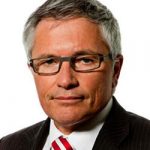A mixed bag for the social economy

3 April 2019 at 12:33 pm
When it comes to the budget, the devil, as always, is in the detail, writes Dr David Hayward, emeritus professor of public policy and the social economy at Future Social Service Institute.
The 2018/19 Commonwealth budget is something of a mixed bag for the social economy, broadly defined as that part of the economy providing social and community services for purpose, not profit.
The best budgets for the social economy focus on spending rather than tax cuts and on the surface this one looks okay.
Despite all the headlines, this budget allocates around $10.8 billion over five years for spending initiatives, while a net $0.4 billion goes toward tax cuts. For this year and next, the ratio looks slightly less impressive with spending measures of $4.3 billion sitting against net revenue cuts of $820 million.
But the devil, as always, is in the detail.
A full $1.2 billion of the new spending initiatives this year involves the bringing forward of local government financial assistance grants from 2019/20. And $1 billion of the new spending measures the year after is for the Treasury, with infrastructure the biggest single beneficiary with disaster relief not that far behind.
Over the full five years, a whopping $8.5 billion of the $10.8 billion in new spending is earmarked for Treasury this way.
There’s not a lot left then for social initiatives and too many of the ones that catch the eye are in social services that have a large and growing for-profit industry to share the rewards.
The big exceptions are an allocation of over $500 million for a long-overdue royal commission into violence against people with disability over the next five years, and an additional $1 billion for public health over the same time period, albeit with the biggest component of $400 million not arriving until year five.
Youth mental health is another welcome exception but the sums are not that large, amounting to barely $40 million over the next two years (around $160 million over the next five).
Aged care gets an extra $440 million over the next two years, and in a pre-budget announcement – that does not incidentally affect the budget – the NDIS is kicking in a welcome additional $850 million for a much needed lift in payments to disability service providers, many of whom are under great stress.
Are there any stings in the tail? Well yes, quite frankly, but they are not likely to get much press.
The social services portfolio as a whole gets an extra $550 million over the next couple of years, but then cops $1.6 billion of cuts in the three years after, with “changes (to) the Social Security Income Assessment Model” the biggest contributor. That’s most surely not good news for those living on income support.
GST revenues are down a rather large $2.8 billion over the next few years and $10 billion over the next five years.That money will come straight out of the pockets of the state and territory treasuries, which are the biggest funders of much of Australian social service provision.
We will have to wait till the states and territories bring down their budgets in coming months to see what knock on effect this has, coming precisely at that moment when declining property market receipts are putting unwelcome holes in state and territory coffers.
Perhaps the biggest news involves measures described rather boringly as “decisions that have been taken but yet to be announced”.
Disclosed at the end of a 19 page table on page 45 of Budget Paper number two is the biggest single initiative announced in the budget: a $2.6 billion cut in Commonwealth spending in 2022/23.
With the government set to announce in the coming week that we are going to the polls very soon, that figure might end up getting the attention it deserves.
About the author: Dr David Hayward is emeritus professor of public policy and the social economy at the Future Social Service Institute (FSSI), a collaboration between RMIT University, Victorian Council of Social Service (VCOSS) and the Victorian Government. He is a former dean of business at Swinburne University and dean of social science at RMIT University, and a member of the board of directors of the Royal Melbourne Hospital. He is a life member of VCOSS and in 2015 was invited to become a seconded member of its governing board.








